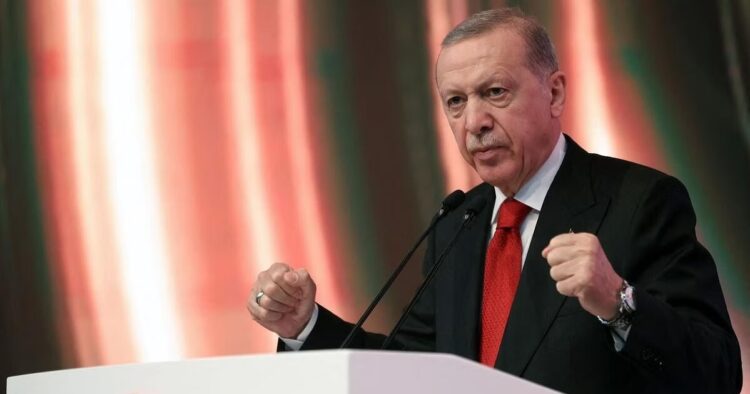Turkey’s President Recep Tayyip Erdogan made a surprising announcement on Friday, indicating that the upcoming local elections in March would be his last. Erdogan, who has been in power since 2003, spoke at a meeting of the TUGVA young Turks foundation, stating, “I am working non-stop…because, for me, it’s a final.” This marks the first time Erdogan has mentioned leaving office.
The 70-year-old leader expressed confidence that his conservative Justice and Development (AKP) party would continue to hold power even after his departure. He mentioned that the results of the March 31 local elections would benefit those who come after him, indicating a smooth transfer of power within his party.
The AKP is particularly eager to regain control of the mayorship of Istanbul in the upcoming elections, which they lost to the opposition in 2019. Erdogan himself served as the mayor of Istanbul from 1994 to 1998 before ascending to higher political positions.
Erdogan’s political journey began when he was elected as prime minister in 2003, a position that held significant power in Turkish politics at the time. However, his influence increased further when he became president in 2014. A constitutional change in 2017 transformed Turkey’s political system into an executive presidency, consolidating Erdogan’s authority and abolishing the position of prime minister.
Despite Erdogan’s claims of nearing the end of his political tenure, critics remain skeptical. Some, like human rights activist Ercan Ozcan, argue that Erdogan may attempt to modify the constitution to secure his reelection repeatedly, extending his rule indefinitely.
Erdogan has been known as a formidable leader since his party, the AKP, came to power in 2002. However, in recent years, his popularity has faced challenges. In 2019, his candidates for mayor in Istanbul and Ankara were defeated, signaling a shift in public sentiment. Additionally, in the presidential election last May, Erdogan was forced into a second-round run-off for the first time, indicating a potential weakening of his political dominance.

















Comments